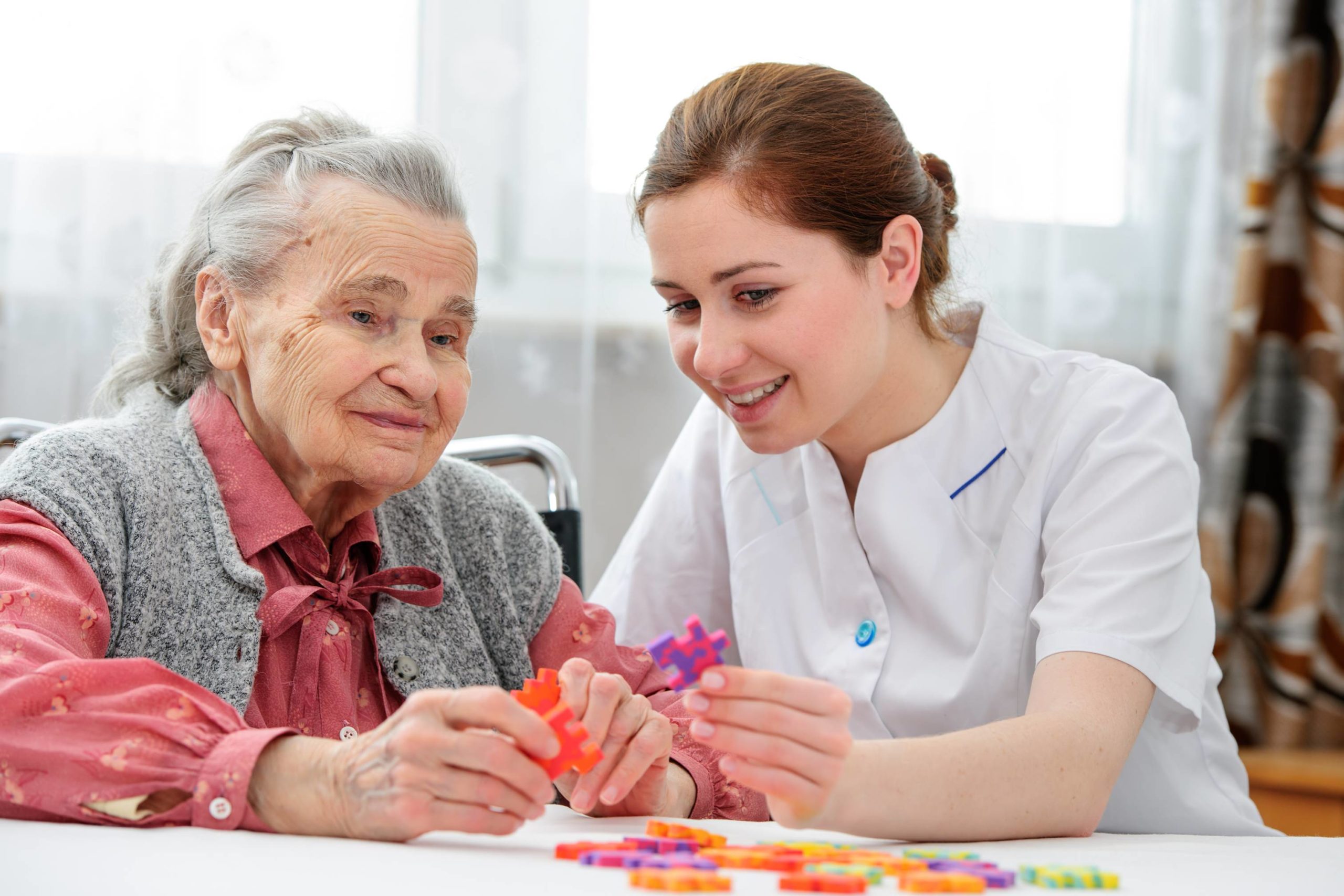
Understanding Mental Deterioration Treatment: An Overview for Loved Ones
The intricacies of dementia care call for a nuanced understanding that extends beyond standard knowledge of the problem itself. As we explore these crucial elements, it ends up being obvious that the journey of recognizing dementia treatment is not just regarding the specific impacted, yet also concerning the elaborate dynamics that shape their experiences and relationships.
What Is Dementia?
Mental deterioration is a collective term that includes a series of cognitive impairments defined by a decrease in memory, thinking, and social capacities severe sufficient to conflict with day-to-day live. It is not a details disease yet instead an umbrella term that includes different kinds of cognitive problems, with Alzheimer's condition being one of the most common. Other forms include vascular dementia, Lewy body mental deterioration, and frontotemporal dementia, each with distinct qualities and underlying causes.
The start of dementia commonly entails progressive cognitive decrease, affecting the individual's capability to perform daily tasks and engage meaningfully with others. These problems can manifest as problems with interaction, problem-solving, and judgment. As mental deterioration progresses, people may experience adjustments in mood and habits, which can better complicate their care and social interactions.
Recognizing dementia is necessary for families, caretakers, and medical care professionals to provide appropriate support and treatments. Early diagnosis and treatment can aid manage symptoms and improve the lifestyle for those affected. Additionally, it fosters a deeper understanding of the difficulties faced by individuals with dementia, highlighting the relevance of thoughtful treatment and support throughout their journey.
Acknowledging the Signs
Identifying the symptoms of mental deterioration very early is critical for reliable treatment and support - memory care facilities charlotte. Dementia incorporates a series of cognitive disabilities that can manifest in numerous methods, commonly impeding daily performance and high quality of life. Typical early signs and symptoms consist of memory loss, specifically forgetting current events or conversations, which might initially be disregarded as typical aging
As the condition proceeds, people might exhibit troubles with problem-solving, preparation, or finishing acquainted jobs, such as taking care of funds or complying with a recipe. Complication about time or location commonly occurs, bring about disorientation and stress and anxiety. Changes in mood and habits are likewise considerable indicators; people may come to be withdrawn, short-tempered, or exhibit lethargy in the direction of tasks when appreciated.
Additionally, obstacles in language can emerge, showing up as difficulty in locating the ideal words or complying with discussions. Recognizing these signs early can facilitate prompt clinical assessment and treatment preparation. It is necessary to come close to these monitorings with sensitivity and understanding, as they can be distressing for both the private and their loved ones. Trigger focus to these indicators can result in better outcomes and support for those impacted by mental deterioration.
Efficient Interaction Techniques

Non-verbal signs play a vital role in communication. Maintaining eye contact, using suitable facial expressions, and employing motions can help communicate your message more properly. Furthermore, creating a distraction-free atmosphere can further assist in meaningful interactions.
Active listening is vital; give the individual enough time to react without interrupting. Verify their sensations and experiences, which promotes trust and motivates open discussion. When discussing familiar subjects or memories, make use of prompts to assist the discussion, assisting them really feel involved and valued.
Lastly, be prepared to adapt your approach based on the person's existing cognitive state. Adaptability in communication techniques makes certain that you continue to be connected, strengthening the value of your partnership. By implementing these strategies, you can create an encouraging environment that urges favorable communications with people affected by dementia.
Developing an Encouraging Setting
Developing an encouraging setting is essential for enhancing the lifestyle for individuals with dementia. This environment ought to prioritize safety, familiarity, and comfort to lower anxiety and complication. Begin by lessening possible dangers; remove tripping challenges, protected rugs, and make sure that lights suffices. Clearly mark rooms and areas with indicators or signs to aid navigation.
Including regimens can provide a feeling of stability. Foreseeable timetables assist people with dementia comprehend what to anticipate throughout the day, therefore reducing sensations of disorientation. Customizing the dementia care charlotte living room with familiar things, pictures, and mementos can stimulate favorable memories and produce a sense of belonging.
Furthermore, take into consideration the sensory facets of the environment. Soft colors, calming fragrances, and gentle audios can contribute to a tranquil environment. Balance excitement to prevent overwhelming the person; silent areas for relaxation ought to enhance much more active spaces for social interaction.
Self-Care for Caregivers
Sustaining individuals with dementia calls for not just a well-structured setting yet also focus to the health of caregivers. Caregivers frequently encounter emotional, physical, and psychological difficulties that can cause exhaustion otherwise appropriately addressed. Focusing on self-care is vital to keep their health and performance in giving treatment.
First, caretakers need to establish a regular regimen that includes time for personal tasks and relaxation. Taking part in hobbies, workout, or merely strolling can significantly reduce anxiety. It is crucial to maintain a balanced diet and make certain adequate rest to improve physical strength.
Furthermore, caretakers ought to look for social assistance. This can be completed by joining assistance teams, engaging with close friends, or speaking to relative regarding their experiences and feelings. Such links help caregivers feel less separated and give useful emotional outlets.
Lastly, caregivers should not be reluctant to seek specialist assistance when required. Consulting psychological wellness professionals can help in developing coping approaches and offer devices for handling the psychological toll of caregiving. By actively exercising self-care, caretakers can enhance their wellness, inevitably profiting both themselves and the people they take care of.
Final Thought
In conclusion, understanding dementia care is critical for enhancing the quality of life for people influenced by this condition. In addition, focusing on self-care for caretakers guarantees their health, ultimately benefiting both caregivers and those getting care.
As we explore these necessary elements, it comes to be evident that the trip of recognizing mental deterioration care is not simply concerning the individual influenced, however likewise concerning the complex characteristics that shape their connections and experiences. Other types include vascular mental deterioration, Lewy body mental deterioration, and frontotemporal dementia, each with distinctive features and underlying reasons.
As dementia advances, people might experience modifications in mood and actions, which can even more complicate their treatment and social communications.
Furthermore, it promotes a much deeper understanding of the obstacles dealt with by people with dementia, highlighting the value of thoughtful treatment and support throughout their journey.
In conclusion, understanding mental deterioration treatment is vital for improving the quality of life for individuals impacted by this condition. (charlotte care home)